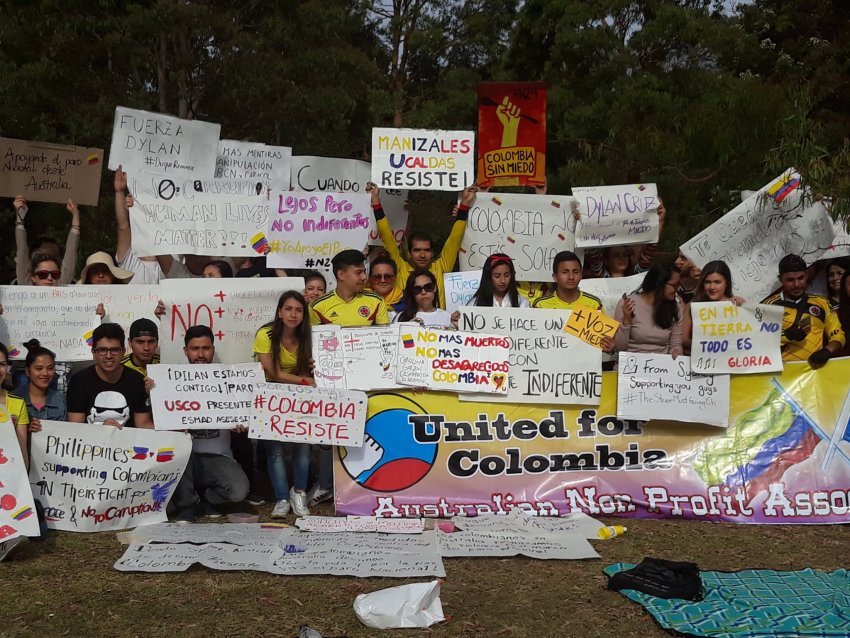
For the second year in a row Colombia is the world’s most dangerous country for environmentalists, according to the international human rights group Global Witness.
Global Witness has documented the murders of environmental defenders across the globe since 2012. Each year it publishes a report of the collected data.
This year’s report, Last Line of Defence, records the extra-judicial killings of some 227 land rights and environmental defenders worldwide.
Colombia accounts for 29% of all documented murders of environmentalists (65 were killed in the previous 12 months). Most killings took place in rural areas, particularly in the south west, where Indigenous communities are trying to defend their land.
Preventing deforestation is a major concern for environmentalists in Colombia. Elizabeth Dickinson, senior analyst at the International Crisis Group, told The Globe and Mail that powerful economic interests are behind the deforestation caused by “cattle ranching [and] tearing down forests to grow things like palm or to harvest wood”.
Dickinson said civilians who resist big capital are “unprotected”, with “very limited resources” and are “essentially disposable to this very powerful interest”.
The situation in Colombia is deadly for environmental activists, and for all activists and working people, including campesinos and First Nations peoples, who struggle against political repression and decades of neoliberal policies.
Neoliberalism has caused, amongst other things, extreme inequality, crop eradication, environmental degradation, high unemployment, entrenched political corruption and drug trafficking.
The situation flared up in late April when workers initiated days of mass mobilisations and a national strike to protest a neoliberal tax reform bill and widespread socioeconomic inequalities and injustices. Thousands of First Nations peoples participated, with demands including land rights, and an end to fracking and fossil fuel extraction and to the use of glyphosate on crops.
In response to the widespread protests, right-wing president Iván Duque and his defence minister, Diego Molano, ordered the anti-riot squad, Escuadrón Móvil Antidisturbios (ESMAD), and the national police to respond with force.
The retaliation was disproportionate and brutal. Some 50 civilians were killed, 384 were injured and at least 1139 disappeared. In addition, there were numerous sexual assaults against women by members of the police force. A disproportionate number of First Nations protesters were targeted and killed in the violence.
In the United States, 55 elected representatives petitioned the US government in May over the political and human rights situation in Colombia, urging it to clearly and unambiguously denounce police brutality. They called for a suspension of US direct assistance to the Colombian National Police and ESMAD until concrete and clear human rights benchmarks are established and met.
However, President Joe Biden’s administration continues to support the Duque government, praising its efforts in fighting the “war on drugs”. This “war” — like so many others — has been unsuccessful and drug production is at an all-time high.
Since 2000, Colombia has received nearly US$10 billion in US aid to fight its war on drugs under Plan Colombia. Most of that money has gone to the country's security forces, which have been implicated in numerous extra-judicial killings and indiscriminate shootings of unarmed civilians.
The other reason the US continues to support Colombia’s brutal right-wing government is that, with socialist Venezuela on its border, Colombia is considered to have enormous geopolitical importance. It is no accident that the US has at least seven military bases in Colombia.